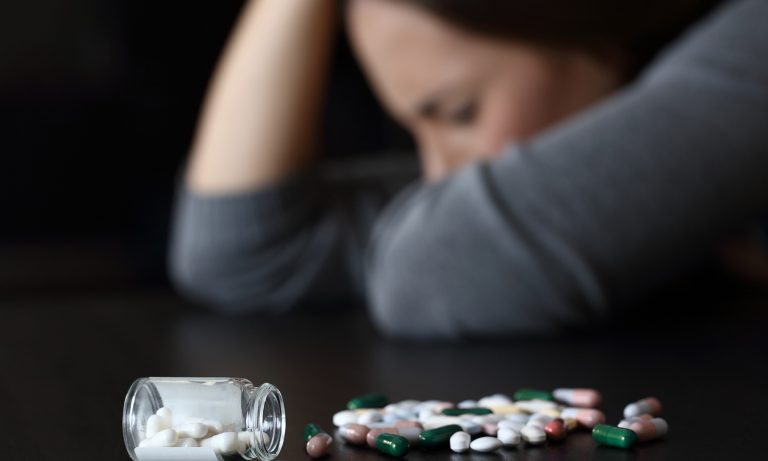addiction
rehab for drug addiction
"Some alcohol or drug rehabs provide residential detox facilities in addition to the rehabilitation programme, which residents may choose to access prior to starting the rehabilitation programme. Others rehabs do not, and residents requiring a drug or alcohol detox will be required to complete it elsewhere, either in an inpatient detox unit or in the community as an out-patient detox. Wherever it is completed, all rehabs will require residents to be drug free before starting the rehabilitation component of the programme and for its duration. Not everyone will need a detox prior to rehab and advice is best sought from a local community drugs service about an individual?s ?readiness? for rehab. Detox is usually funded from a separate budget to the rehab component and these arrangements will be explained by the community drugs service that should also provide support and advice for the individual preparing to go to detox and rehab. Rehab Online does not provide details of inpatient detox-only facilities, but does provide details of rehabs that also offer detox facilities."

rehab ot
"Living a fully sober life is the end goal of rehab, and it should be what your loved one is aiming for. However, the life of an addict and their journey to sobriety isn?t as straightforward as many people think it is. Rehab doesn?t magically remove the addiction, but it can improve their life. Many addicts relapse, but that doesn?t mean rehab failed. Instead, it means they weren?t quite prepared for how insidious addiction is. They may need to learn a few new tools for dealing with cravings, or they may need to make more drastic life changes. Either way, it?s not a failure, it?s a lesson. As long as the addict is dedicated to sobriety and is willing to admit their mistake and try again, they haven?t failed. Drug rehab can be seen as effective if the addict stops using drugs as frequently or in large quantities. It can also be seen as successful if they go longer between relapses. It shows that they?re learning how to deal with their cravings and their addiction."
drug addiction rehab
"The first step towards recovery is acknowledging that substance use has become a problem in the person?s life which is disrupting the quality of their life. This can result from impairment in school, work, social, recreational or other important areas of function. Once an individual recognizes the negative impact of a substance on their life, a wide range of treatment options is available. A person with an addictive disorder requires access to treatment. For most people, treatment may last for the rest of their life. They will need to abstain from the substance on a life-long basis, which can be difficult. Treatment plans for addictive disorders will often change to meet the needs of the patient."


rehab therapies
"Following the conclusion of primary and occasionally secondary drug addiction treatment, ongoing care, also known as aftercare, is the continuation of care. Anyone who has received therapy typically needs additional support, such as counseling, as well as additional drug prescriptions if the recovering client experiences withdrawal symptoms (such as in cases of post-acute withdrawal syndrome, or PAWS). A top-notch drug treatment will provide an aftercare plan that includes up to a year of support after leaving the facility. This strategy might involve a participation commitment from the person receiving treatment as well as a schedule of appointments that would get less frequent as their recovery progressed."
rehab pilates
"Finding the best drug rehab program might be challenging when the time comes to act. Finding a drug treatment center nearby can be beneficial, but online searches may also provide results for programs that require travel, which is why many individuals use search engines to ask ""drug rehab near me."" Away from home, inpatient drug rehab facilities can present more chances for recovery in an unfamiliar, distraction-free setting."

am i an alcoholic
"Treatment for substance addiction is different from detoxification from a substance. Simply put, it is a method for easing withdrawal symptoms while the body rids itself of harmful drugs and becomes used to their absence. People experience confusion in their thinking and sickness both physically and mentally while going through drug detox. Until their brains are clear and they are feeling better, they are not open to any form of counseling or treatment. Even while medical detox greatly eases the process, it is important to first concentrate on completing the detox process before taking additional action."
the addiction recovery journal
"The attention that treatment facilities give to nutrition and wellness is another advantage of attending drug rehab. Regular drug and alcohol use deprives the body of essential nutrients. Poor diets might result in headaches, trouble sleeping, and low energy, all of which can obstruct a full recovery. Meals are planned and balanced in a rehab facility to make sure you are getting the right nutrition for your body to heal. According to studies, people in recovery function best on a low-glycemic, dopamine-enhancing diet that comprises the majority of protein sources, foods high in fiber, and unsaturated fats. A successful recovery depends on receiving the right nourishment; a balanced diet enhances both mood and general health, which can lessen drug cravings and aid relapse."

How long are your rehab programs?
Drug rehab programs vary in length greatly, from 30 days to 90 days or longer. Depending on your personal needs and the complexity and severity of your addiction, you may need a short or long-term rehab program to achieve lasting sobriety. Although a longer program requires more of a commitment, research shows that most people need at least 90 days to maintain positive outcomes in treatment.2 It’s always a good idea to ask about the duration of a rehab center’s programs as well as a continuum of care that carries clients through each stage of the addiction treatment process.
Are your rehab programs personalized to each client’s needs?
All drug detox and rehab treatment programs should begin with a personal assessment to determine your treatment needs. This process is essential because it gives professionals the information they need to properly develop a treatment plan that will address your individual needs and circumstances. All individuals experience addiction differently, so there is no one-size-fits-all solution. Effective addiction treatment must be individualized and adjusted to meet the changing needs of the client.
What type of treatment methods do your rehab programs use?
Treatment approaches for drug and alcohol addiction can vary depending on the drug rehab center and its core principles and beliefs. According to the Substance Abuse and Mental Health Services Administration (SAMHSA), high-quality research shows evidence-based programs provide positive outcomes for people who are recovering from addiction.1 There are many different types of treatment methods available, but for many people, the most effective approach includes individualized treatment comprised of a mixture of counseling and medication. It’s important to determine the treatment methods and approaches of any drug rehab center you consider, as this will directly affect your success in sobriety.
What makes your drug rehab center different?
Another great way to find out if a drug rehab program is right for you is to ask how it differs from the competition. Do staff members go above and beyond to help you coordinate an intervention or connect you with a professional interventionist? Do they offer a broad range of specialized therapies during treatment? Does the rehab center boast a beautiful, calming, and tranquil setting for addiction treatment? Find out what makes the rehab center unique to get a better idea of who they are and what they believe.
Are you able to treat clients with a dual diagnosis?
If you’ve been diagnosed with substance use disorder and mental health disorders like anxiety, depression, or PTSD, your treatment plan may be more complex than others. The most effective way to address co-occurring disorders is with integrated treatment, but not all drug rehab programs, facilities, and staff are properly equipped to manage the needs of clients with a dual diagnosis.3 As a result, it’s important to talk to the staff about their ability to treat dual diagnosis and provide proper care for a full recovery.
Does your treatment program provide family support?
Family involvement is also very important in addiction treatment and can help all affected individuals to heal and recover from the damage of chronic substance abuse.4 A high-quality drug rehab program will provide support for the whole family, which may include family therapy sessions or an intensive family program that provides education about drug and alcohol addiction, therapeutic interventions, group work, and homework assignments to promote positive behavioral changes.
What type of continuing care services are available after rehab?
Addiction recovery is an ongoing process that requires continued care, treatment, and support for a full recovery. As such, many drug rehab programs offer continuing care programs for clients that have already completed drug detox, residential rehab and/or an intensive outpatient program. Continuing care services may seem like an afterthought, but they are an essential part of the treatment process. Programs like IOP, aftercare, and sober living keep individuals engaged with their recovery, provide positive and sober social experiences, and offer one-on-one support and assistance managing relapse (if it occurs). If you’re considering a drug rehab center for services, make sure to find out what kind of continuing care programs are offered and to what extent.
How much do your programs cost and what are my payment options?
While the cost of treatment should never be a barrier, some “luxury” drug rehab programs can cost tens of thousands of dollars and aren’t a realistic option for everyone. Fortunately, many drug rehab programs are affordable and people with health insurance may use their benefits to reduce any out-of-pocket costs associated with treatment. When considering any drug rehab center for treatment, it’s always ideal to ask about cost up front and get details about any available payment options. Most drug rehab centers will provide free and confidential insurance benefits verification to help you maximize your benefits and use your health insurance to pay for rehab. Some drug rehab centers may also provide sliding scale payment options, reduced out-of-pocket payments, or scholarships to help make treatment more affordable for those who need it most.
Is your drug rehab center licensed and accredited?
A high-quality drug rehab center should, at a minimum, meet the state’s licensure requirements. In addition to that, the facility may also receive accreditation through several different agencies. The accreditation process can be long and tedious, but a rehab center that has completed an accreditation process displays its commitment to excellence as well as to the high standards set by the accrediting organization. Some of the most common types of drug rehab accreditation include those provided by the Joint Commission, the Commission on Accreditation of Rehabilitation Facilities (CARF), the Council on Accreditation (COA), and the National Committee for Quality Assurance (NCQA).
What type of detox does your rehab center offer?
Detox is often the first step in the addiction treatment process. Completing a detox program allows your body to cleanse itself of harmful chemicals and restore its natural functions. This also gives you the ability to start a rehab program in a stable and sober state, both mentally and physically. Drug detox and withdrawal can be severely uncomfortable and may even be life-threatening, depending on your substance abuse history, so having 24/7 medical assistance is not just ideal, it’s absolutely necessary. A drug rehab center should offer medical detox to ensure clients’ safety, comfort, and overall well-being at all times.